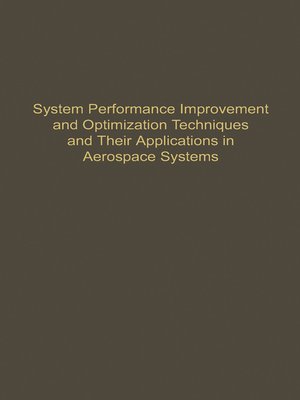Control and Dynamic Systems V54
ebook ∣ System Performance Improvement and Optimization Techniques and Their Applications in Aerospace Systems: Advances in Theory and Applications
By C.T. Leonides

Sign up to save your library
With an OverDrive account, you can save your favorite libraries for at-a-glance information about availability. Find out more about OverDrive accounts.
Find this title in Libby, the library reading app by OverDrive.



Search for a digital library with this title
Title found at these libraries:
| Library Name | Distance |
|---|---|
| Loading... |
Control and Dynamic Systems: Advances in Theory and Applications, Volume 54: System Performance Improvement and Optimization Techniques and their Applications in Aerospace Systems covers the issue of aerospace system performance and optimization techniques in aerospace systems. This book is composed of 12 chapters and begins with an examination of the techniques for aircraft conceptual design for mission performance. The succeeding chapters describe the balances and optimized design for aircraft and spacecraft structures through finite element procedures and the application of the knowledge-based system techniques for pilot aiding. These topics are followed by discussions of the optimal sensor placement for on-orbit modal identification experiments; the optimization techniques for helicopter airframe vibrations design; the size reduction techniques for efficient aeroservoelastic model determination; sensitivity analysis of eigendata of aeroelastic systems; and a simplified solution for transient structural dynamic problems with local nonlinearities. Other chapters explore a reduction algorithm for systems with integrators and the techniques for overcoming the difficulty of nonuniqueness of mode shape in modal analysis when random input data are not or cannot be measured. The last chapters consider the combined concepts of Krylov vectors and parameter matching and their application to develop model-reduction algorithms for structural dynamics. These chapters also provide the techniques for the development of new tracking algorithms that would incorporate explicit models of the maneuvering/nonmaneuvering phases of target encounter. This book will prove useful to aerospace, control, systems, and design engineers.







